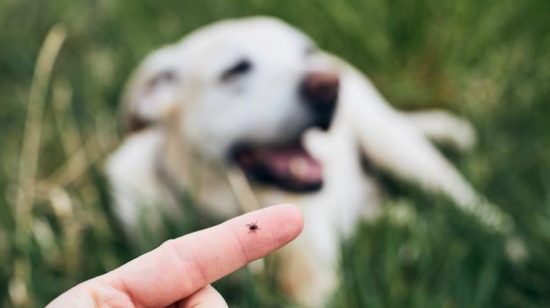Can Dogs Have Cinnamon? A Guide for Pet Owners
Discover whether cinnamon is safe for your furry friend and learn the potential benefits and risks of this common spice for dogs.

Did you know that cinnamon is not just a popular spice among humans, but it has also made its way into the world of pet nutrition? That’s right, many pet owners have started incorporating cinnamon into their dogs’ diets. But can dogs have cinnamon? Is it safe for them to consume? Why dent we explore the safety, potential benefits, risks, and appropriate dosage of cinnamon for dogs here. Whether you’re considering adding cinnamon to your dog’s meals or you’re simply curious about its effects, this blog will provide you with all the information you need. So let’s dive in and uncover the truth about dogs and cinnamon!
Navigating the Spice Rack: Can Dogs Have Cinnamon?

To determine if dogs can safely consume cinnamon, it is essential to understand their dietary needs. Like humans, dogs require a balanced diet that includes a combination of proteins, carbohydrates, fats, vitamins, and minerals. Protein is particularly important for dogs as it supports their muscle development and overall health.
While cinnamon is not an essential component of a dog’s diet, it can be incorporated in moderation under certain circumstances. Remember, a dog’s nutritional needs differ from those of humans, so it’s crucial to consider their specific dietary requirements when introducing new foods or spices.
Benefits of Cinnamon for Dogs: Sorting Fact from Fiction
Cinnamon is often touted for its potential health benefits, and the same applies to dogs. While there are claims that cinnamon can improve digestion, regulate blood sugar levels, and even boost the immune system in canines, it’s important to separate fact from fiction. Various studies have shown that cinnamon contains antioxidants and anti-inflammatory properties, which may provide certain health benefits for dogs. However, it’s important to note that these benefits are typically observed when cinnamon is consumed in moderation and as part of a balanced diet. As with any dietary supplement, it’s always best to consult with your veterinarian before introducing cinnamon into your dog’s diet. They can provide personalized advice based on your dog’s specific health needs.
Possible Allergic Reactions to Cinnamon in Dogs
Just like humans, dogs can have allergic reactions to cinnamon. Common signs of cinnamon allergies in dogs include itching, redness, swelling, hives, and difficulty breathing. If you suspect that your dog may be allergic to cinnamon, it’s important to seek veterinary attention promptly. Your veterinarian can perform a thorough examination, diagnose the allergy, and provide appropriate treatment options.
Seeking Alternatives: Safe Dietary Additions for Your Dog
When it comes to your furry friend’s diet, it’s important to consider safe and beneficial alternatives to ensure their overall well-being. Incorporating healthy supplements, dog-friendly spices and herbs, and natural treats into their meals can provide numerous benefits for their health and happiness.
Healthy Supplement Options for Canine Diets
Supplements can be a great addition to your dog’s diet, providing essential nutrients that may be lacking in their regular meals. Some popular and healthy supplements for dogs include:
- Rich in omega-3 fatty acids, fish oil supports your dog’s skin, coat, and joint health.
- Probiotics promote healthy digestion and optimal gut health in dogs.
- Glucosamine helps maintain joint health and mobility, particularly in senior dogs.
- Coconut oil can improve your dog’s skin and coat health, as well as provide natural antimicrobial properties.
Natural Treats Vs. Commercial Dog Treats
When it comes to rewarding your pup, you have the choice between natural treats and commercial dog treats. While both can be enjoyed by your furry friend, there are some key differences to consider:
| Natural Treats | Commercial Dog Treats |
|---|---|
| Often made with limited, natural ingredients. | May contain artificial preservatives, colors, and additives. |
| Can be a healthier option with added nutritional value. | May lack essential nutrients and contain higher calorie content. |
| Can be less processed and closer to homemade treats. | Manufactured under strict guidelines for consistency and quality control. |
While natural treats provide a more wholesome option, commercial dog treats can still be enjoyed in moderation. Always read the ingredients list and choose treats that prioritize your dog’s well-being.
Understanding Cinnamon Toxicity in Dogs
In this section, we will delve into the topic of cinnamon toxicity in dogs and discuss the potential dangers associated with excessive consumption of this spice. While cinnamon can have some health benefits for dogs when given in moderation, it’s essential to be aware of the symptoms of overconsumption and the potential risks involved.
Identifying Symptoms of Overconsumption
When a dog ingests an excessive amount of cinnamon, they may display various symptoms that indicate excessive cinnamon consumption. These symptoms can include:
- Gastrointestinal issues such as vomiting and diarrhea
- Increased heart rate
- Difficulty breathing
- Irregular heartbeat
If you notice any of these symptoms in your dog after they have consumed cinnamon, it’s crucial to take immediate action to ensure their safety.
Emergency Responses: What to Do If Your Dog Has Cinnamon
If your dog consumes cinnamon and shows any signs of distress, it’s essential to act quickly. Here are the steps you should take in an emergency:
- Determine how much cinnamon your dog has consumed, whether it’s in the form of powdered cinnamon, essential oils, or sticks.
- Contact your veterinarian immediately and provide them with all the necessary information. They will guide you on the next steps based on the severity of the situation.
- Unless specifically instructed by your veterinarian, do not try to induce vomiting in your dog. Some substances, such as cinnamon sticks, can cause blockages that may worsen with vomiting.
- Keep a close eye on your dog’s symptoms and behavior while waiting for veterinary guidance. Note any changes or worsening of symptoms.
- Your veterinarian will provide you with specific instructions on how to manage the situation. It’s crucial to follow their guidance and seek immediate veterinary care if advised.
Remember, prompt action is vital when dealing with potential cinnamon toxicity in dogs. By being aware of the symptoms and taking quick and appropriate measures, you can help ensure the well-being of your furry friend.
How Much Cinnamon Can I Give My Dog? Determining Dosage
When it comes to giving cinnamon to your dog, determining the appropriate dosage is crucial to ensure their safety. While cinnamon can have potential benefits for dogs, it’s important to remember that moderation is key.
The appropriate cinnamon dosage for dogs depends on factors such as your dog’s size, overall health, and any pre-existing conditions they may have. It’s always best to consult with your veterinarian before incorporating cinnamon into your dog’s diet.
As a general guideline, the safe amount of cinnamon for dogs is approximately 1/8 to 1/4 teaspoon per day for small to medium-sized dogs. Larger dogs may be able to tolerate slightly higher amounts, but it’s still important to start with a small dosage and monitor your dog’s reaction.

It’s also important to consider that not all dogs may react well to cinnamon. Some dogs may be more sensitive or allergic to this spice, so it’s crucial to observe any signs of discomfort, allergic reactions, or digestive issues after introducing cinnamon to your dog’s diet.
When determining the dosage guidelines for dogs consuming cinnamon, it’s best to start with a small amount and gradually increase it over time if your dog shows no adverse reactions. Keep an eye out for any changes in your dog’s behavior, appetite, or digestion, and consult your veterinarian if you have any concerns.
The Canine Palette: Do Dogs Even Like Cinnamon?
As pet owners, we often wonder about our dogs’ flavor preferences and whether they enjoy the same tastes as humans. When it comes to cinnamon, dogs’ preference for this warm and aromatic spice can vary.
While humans tend to find cinnamon delightful, dogs have a different taste palate. Dogs have fewer taste buds than humans, and their sense of taste is less developed. They are more attracted to meaty, savory flavors, making treats like chicken or beef their favorites. One misconception is that dogs cannot handle spicy foods. However, dogs can tolerate some level of spiciness, including cinnamon. It’s important to note that dogs may have different levels of spice tolerance, so it’s best to introduce new flavors gradually to avoid any digestive issues.
When introducing cinnamon or any new flavor to your dog, it’s crucial to do so in moderation and observe their reaction. Start by adding a small amount of cinnamon to their regular food or offer them a cinnamon-flavored treat. If they show signs of enjoyment and tolerate it well, you can continue incorporating it into their diet occasionally. However, it’s essential to consult with your veterinarian before introducing any new flavors to your dog, especially if they have underlying health conditions or special dietary needs.
Spotting Cinnamon Allergies in Dogs: Signs and Precautions

If you suspect that your dog may have an allergy to cinnamon, it is important to be able to recognize the signs and take appropriate precautions to keep your furry friend safe. While cinnamon allergies in dogs are relatively rare, they can still occur, and knowing what to look for can make a big difference in your pet’s well-being.
Signs of cinnamon allergies in dogs can vary, but common symptoms may include:
- Itching and scratching
- Hives or rashes
- Red or inflamed skin
- Sneezing or coughing
- Vomiting or diarrhea
- Difficulty breathing
If you notice any of these signs after your dog has consumed cinnamon or come into contact with products containing cinnamon, it is crucial to consult with your veterinarian. They can help determine if your dog is indeed experiencing an allergic reaction and provide appropriate treatment and guidance.
A Case Study: Long-Term Effects of Cinnamon in a Dog’s Diet
As we wrap up our exploration of cinnamon’s impact on dogs, let’s delve into a case study that examines the long-term effects of cinnamon consumption in a dog’s diet. This study provides valuable insights into the potential outcomes of incorporating cinnamon into your furry friend’s meals.
In the case study, a group of canines was introduced to small amounts of cinnamon as part of their daily diet for an extended period. The findings revealed several interesting observations. Firstly, it was observed that dogs who consumed cinnamon regularly experienced improved digestion and bowel function. The anti-inflammatory properties of cinnamon seemed to have a positive impact on their gastrointestinal health.
Furthermore, the study noted a potential link between cinnamon consumption and enhanced joint health in dogs. Canines who were given cinnamon regularly exhibited increased mobility and reduced stiffness, suggesting that cinnamon may contribute to the overall well-being of their joints.
While the case study showcased these encouraging results, it is important to remember that every dog’s system is unique. It’s crucial to consult with your veterinarian before incorporating any new dietary element into your pet’s routine. They can provide personalized guidance based on your dog’s specific needs and health conditions, ensuring the safest and most beneficial approach.
FAQs on Can dogs have cinnamon
Is cinnamon safe for dogs?
Cinnamon is generally safe for dogs, but it is important to use it in small amounts and monitor for any adverse reactions.
What are the benefits of cinnamon for dogs?
Cinnamon may have anti-inflammatory and antioxidant properties and can potentially aid in digestion and promote oral health in dogs.
What happens if a dog eats too much cinnamon?
Excessive consumption of cinnamon can lead to gastrointestinal upset, including vomiting and diarrhea to your dog, and may also cause liver or kidney damage in extreme cases.
Are there any risks of cinnamon for dogs?
While cinnamon is generally safe for dogs, some dogs may be allergic to cinnamon or have sensitivities. It is important to monitor your dog for any adverse reactions.
Can dogs have honey or cinnamon as natural sweeteners?
Honey and cinnamon can be used as natural sweeteners for dogs, but they should be used sparingly and under the guidance of a veterinarian, as they can still contribute to weight gain and other health issues.
How much cinnamon can I give my dog?
The appropriate dosage of cinnamon for dogs depends on their size and weight. It is best to consult with a veterinarian to determine the correct amount for your dog.
What are some responsible feeding practices when offering cinnamon to dogs?
Some responsible feeding practices include incorporating cinnamon into a balanced diet, consulting a veterinarian about cinnamon consumption, and storing and preparing cinnamon properly for dogs.
How can I identify cinnamon allergies in my dog?
Signs of cinnamon allergies in dogs can include itching, skin redness, hives, swollen face or paws, and gastrointestinal upset. If you suspect your dog has an allergy, consult with a veterinarian.
Are there any long-term effects of cinnamon in a dog’s diet?
The long-term effects of cinnamon in a dog’s diet can vary depending on the individual dog and the amount of cinnamon consumed. It is always best to consult with a veterinarian to ensure your dog’s health and well-being.






